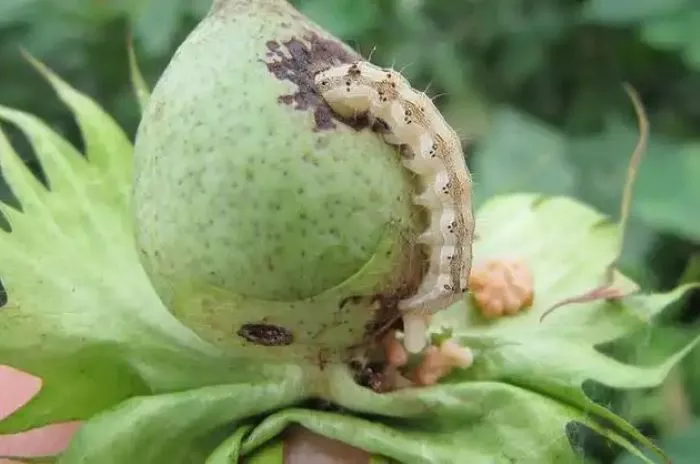June bugs, also known as June beetles, are a common pest that can cause significant damage to rose bushes. These pests are particularly active during the late spring and early summer months. Their presence can lead to unsightly leaves and reduced flower production. Understanding how to keep June bugs from eating your roses is essential for maintaining the health and beauty of your garden. This article will provide a comprehensive guide on identifying June bugs, understanding their life cycle, and implementing effective prevention and control strategies.
Identifying June Bugs
June bugs belong to the Scarabaeidae family and are typically brown or black in color. They are about half an inch to one inch long and have a shiny, hard shell. The adult June bugs are most noticeable at night when they are attracted to lights. They can be found on various plants, including roses, where they feed on leaves, buds, and flowers.
The damage caused by June bugs is often characterized by irregular holes in the leaves and wilting flowers. If left untreated, these pests can weaken the plant and hinder its growth.
Understanding the Life Cycle of June Bugs
To effectively manage June bugs, it is important to understand their life cycle. The life cycle consists of four stages: egg, larva, pupa, and adult.
Egg Stage: Female June bugs lay their eggs in the soil during late spring or early summer. Each female can lay up to 60 eggs.
Larva Stage: The eggs hatch into larvae, commonly known as grubs. These grubs feed on plant roots and organic matter in the soil. This stage lasts several months, often through the summer and into the fall.
Pupa Stage: After feeding, the grubs pupate in the soil. This stage lasts for several weeks, during which the grubs undergo metamorphosis.
Adult Stage: Adult June bugs emerge from the soil in late spring or early summer. They are most active during warm evenings, when they can be seen flying around lights and feeding on plants.
Understanding this life cycle helps in planning effective management strategies. By targeting the vulnerable stages of the beetle’s life, gardeners can reduce their populations.
Prevention Strategies for June Bugs
Preventing June bugs from infesting your rose bushes is the most effective way to protect your plants. Here are several strategies to consider.
Healthy Soil and Plants
Maintaining healthy soil and strong plants is crucial. Healthy plants are less susceptible to pest damage. Here are some tips for promoting plant health:
Soil Quality: Ensure that your soil is rich in organic matter. Incorporate compost to improve soil structure and fertility. Healthy soil supports robust root systems, making roses more resilient to pests.
Proper Watering: Water your roses deeply but infrequently. This encourages deep root growth and helps the plants withstand stress.
Fertilization: Use a balanced fertilizer to promote healthy growth. Avoid over-fertilizing, as this can lead to lush foliage that attracts pests.
Cultural Practices
Implementing good cultural practices can help deter June bugs and other pests.
Regular Maintenance: Keep your garden clean and free of debris. Remove fallen leaves and spent flowers, as these can attract pests.
Companion Planting: Consider planting companion plants that repel June bugs. For example, plants like marigolds and garlic can deter these pests from your roses.
Mulching: Apply a layer of organic mulch around your rose bushes. This helps retain moisture and can also deter pests by creating a less hospitable environment.
Monitoring and Handpicking
Regular monitoring is essential for early detection of June bugs. Here are some practices to consider:
Visual Inspections: Check your rose bushes frequently for signs of June bugs. Look for adult beetles on the plants, as well as signs of feeding damage.
Handpicking: If you notice adult June bugs on your roses, handpick them and drop them into a container of soapy water. This method is effective for small infestations.
Traps: Consider using traps to catch adult June bugs. You can create simple traps using a container filled with soapy water placed near your roses. The scent of the soap will attract the beetles, and they will drown.
Natural Control Methods
If prevention measures are not sufficient, natural control methods can help manage June bug populations.
Neem Oil: Neem oil is a natural pesticide derived from the seeds of the neem tree. It disrupts the feeding and reproductive habits of June bugs. Mix neem oil with water according to the instructions and spray it on affected plants.
Insecticidal Soap: Insecticidal soap can effectively control soft-bodied insects. Spray the soap solution on the beetles and affected foliage to suffocate them.
Beneficial Insects: Encourage beneficial insects, such as ladybugs and lacewings, in your garden. These insects can help control pest populations naturally.
Chemical Control Options
If natural methods do not provide sufficient control, chemical insecticides may be necessary. It is important to use these products responsibly.
Contact Insecticides: Insecticides that target adult beetles can be effective. Look for products containing active ingredients such as carbaryl or pyrethroids. Always follow the manufacturer’s instructions for application.
Systemic Insecticides: These insecticides are absorbed by the plant and provide protection from within. They can be effective against both adult beetles and larvae. Apply systemic insecticides according to the label instructions, usually as a soil drench or granule.
Timing of Application: Timing is crucial for effective chemical control. Apply insecticides when beetles are first spotted or when they are in their peak activity period. This is typically in late spring to early summer.
Conclusion
Keeping June bugs from eating your roses requires a combination of prevention, monitoring, and control strategies. By maintaining healthy soil and plants, implementing good cultural practices, and using natural or chemical controls when necessary, you can protect your roses from these pests. Regular monitoring and early intervention are key to preventing significant damage. With diligence and care, you can enjoy healthy, vibrant rose bushes in your garden throughout the summer months.


